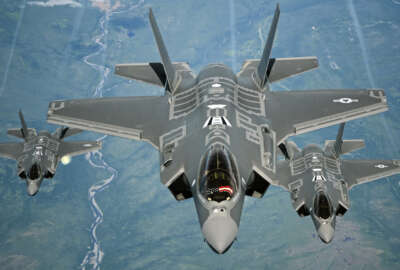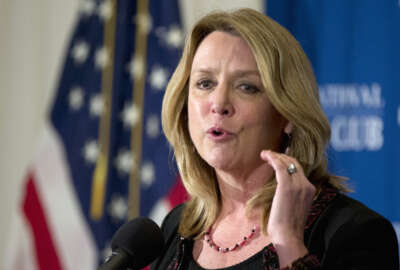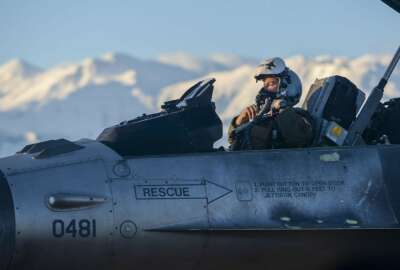
Air Force cuts training to give airmen more time
The Air Force is cutting ancillary and computer-based training so its airmen can have more time for family and profession development.
The Air Force is officially cutting some of its ancillary and computer-based training requirements for airmen in an effort to attract more talent to the force.
The service identified 15 standalone training courses it will completely eliminate to free up Airmen’s time. There are 16 courses that will be consolidated. The Air Force also requested relief from five Defense Department mandated courses.
“We’ve taken some modest steps to ensure we use our airmen’s time in the smartest way, but this is a journey,” Air Force Chief of Staff David Goldfein said in an Oct. 31 statement. “We’ll continue to be deliberate about what we cut or streamline, but more is required as we continue to focus our efforts on the business of warfighting, respecting our Airmen’s time and still meeting the necessary requirements to take care of our mission and our force.”
The Air Force released a list of the courses that will be eliminated or streamlined. A computer-based, 20-minute training course providing an introduction to the role of the Inspector General is getting the ax from the service.
An in-person training course on suicide awareness and prevention will be eliminated as well. The information in the 3-hour training program will be integrated into the Airman Leadership School.
The Air Force conducted a review of 42 specific courses, totaling 60 hours of time, before making its decision on which to cut.
The service also conducted a survey of almost 25,000 airmen to determine which training they found most burdensome.
“After having heard a lot of these concerns and just given the pressure in terms of manpower that we have in the Air Force and the increasing demand for what the Air Force does… the focus was ‘How do we provide an opportunity to give a little bit more white space on the calendar to give these individual Airmen to do the work they were brought in to do supporting our mission?” Gabe Camarillo, Air Force assistant secretary for manpower and reserve affairs told Federal News Radio. “It’s a concern not only to every individual airmen that we hear from, it’s also a concern from a readiness perspective.”
The new changes will take effect by the beginning of 2017.
“This effort is not intended to reduce emphasis on the need to have well-trained and educated airmen. Instead, it is specifically designed to give unit leadership greater flexibility to ensure Airmen successfully complete their mission,” reads an Oct. 27 memo signed by Goldfein and Air Force Secretary Deborah Lee James.
The training reduction comes just months after the Air Force reduced additional duties for airmen.
The service is trying to make military life more attractive as it expands to 317,000 airmen and hopes to move to 321,000.
James said in July that the Air Force has a retention problem.
The Air Force is expected to be short about 700 pilots by the end of 2016. It’s also short on airmen to maintain aircraft.
That’s not all the Air Force is doing to bring in new recruits.
In order to attract the kind of talent the Air Force will need in the 21st century, the service is doing some introspection on what that airman will look like, said Lt. Gen. Gina M. Grosso, deputy chief of staff for Manpower, Personnel and Services.
It may be different than the chiseled, clean-cut military man that comes to mind for most people. Grosso’s office will give some recommendations to the Air Force chief of staff in December.
“We are looking at, honestly, much more liberal policies,” Grosso said.
That includes a possible exception for cyber warriors.
“One of the things that I’m thinking about that is really in the nascent stages, is if you think about warfare in the future … and this interface between man and machine. How much brawn does the military need and how much intellect? I just think about a cyber warrior, now do I care what a cyber warrior weighs? Do I care that they run a mile and a half in 12 minutes? It gets to this idea of rather than having a standard for the whole force, do we think about individual standards? Which frankly scares a lot of people. We are a force that values uniformity,” Lt. Gen. Gina Grosso, Air Force deputy chief of staff for Manpower, Personnel and Services said on Oct.13.
The Air Force is reconsidering its tattoo and uniform standards as well.
Copyright © 2024 Federal News Network. All rights reserved. This website is not intended for users located within the European Economic Area.
Scott Maucione is a defense reporter for Federal News Network and reports on human capital, workforce and the Defense Department at-large.
Follow @smaucioneWFED
Related Stories





